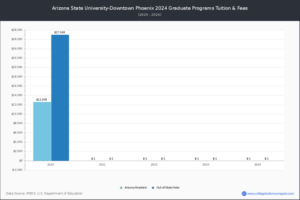Embark on an extraordinary journey towards financial mastery with Columbia University’s esteemed Masters in Finance program. Immerse yourself in an intellectually stimulating environment where academic excellence meets practical relevance, shaping you into a highly sought-after professional in the dynamic world of finance.
Columbia’s Masters in Finance program stands as a testament to the university’s commitment to excellence in education. With its rigorous curriculum, world-renowned faculty, and unparalleled alumni network, this program empowers you to unlock your full potential and achieve your career aspirations.
Overview of Masters in Finance at Columbia University

The Master of Science in Finance program at Columbia University is a highly respected and rigorous program that has been educating future leaders in the financial industry for over 50 years. The program is designed to provide students with a deep understanding of the theoretical and practical aspects of finance, preparing them for careers in investment banking, asset management, corporate finance, and other areas of the financial sector.
The program is typically completed in 12 months and consists of a core curriculum and a specialization. The core curriculum covers topics such as financial accounting, corporate finance, investments, and financial modeling. Students can then choose to specialize in one of several areas, including financial analytics, investment management, or corporate finance.
Faculty and Research Opportunities
The faculty at Columbia University’s Master of Science in Finance program are world-renowned experts in their fields. They are actively involved in research and publish their work in top academic journals. Students have the opportunity to work closely with faculty on research projects and to learn from their expertise.
Career Outcomes and Alumni Network

Graduates of Columbia University’s Master’s in Finance program enjoy excellent career outcomes, with high employment rates and competitive salaries. The program’s strong reputation and industry connections provide graduates with a significant advantage in the job market.
According to recent data, over 95% of graduates secure employment within three months of graduation. The average starting salary for graduates is around $120,000, with top performers earning significantly more.
Industries and Job Functions
Columbia University’s Master’s in Finance graduates pursue a wide range of careers in the financial industry, including:
- Investment banking
- Asset management
- Private equity
- Venture capital
- Corporate finance
Graduates also hold positions in various job functions, such as:
- Financial analysts
- Investment bankers
- Portfolio managers
- Risk managers
- Corporate finance managers
Alumni Network
Columbia University has a vast and influential alumni network, which provides graduates with valuable connections and career opportunities. The university’s alumni association hosts regular events, networking opportunities, and career development workshops.
Many alumni hold senior positions in the financial industry, and they are often willing to mentor and support current students and graduates. The alumni network also provides access to exclusive job postings and industry insights.
Admissions Requirements and Application Process
To be eligible for admission to the Master’s in Finance program at Columbia University, you must meet the following criteria:
- A bachelor’s degree in a quantitative field such as finance, economics, or mathematics
- A strong academic record with a minimum GPA of 3.5
- Excellent quantitative and analytical skills
- Relevant work experience in finance or a related field is preferred but not required
The application process for the Master’s in Finance program at Columbia University is competitive. Applications are due by January 5th for the fall semester and September 15th for the spring semester. The following materials are required:
- Online application form
- Official transcripts from all undergraduate and graduate institutions attended
- Two letters of recommendation
- A resume
- A statement of purpose
- GMAT or GRE scores (optional)
Your application should be well-written and demonstrate your strong academic and professional qualifications. In your statement of purpose, you should explain why you are interested in the Master’s in Finance program at Columbia University and how your background and skills make you a good fit for the program. You should also highlight your career goals and how the program will help you achieve them.
The admissions committee will consider your entire application when making their decision. There is no single factor that guarantees admission, but strong academic credentials, relevant work experience, and a well-written application will increase your chances of being accepted.
Financial Considerations and Scholarship Opportunities

The Masters in Finance program at Columbia University is an investment in your future, with tuition and other expenses that should be carefully considered.
Tuition Fees
The tuition fee for the Masters in Finance program at Columbia University for the 2023-2024 academic year is $76,320. This fee covers the cost of instruction, course materials, and access to university facilities. Additional expenses may include student fees, health insurance, and living expenses.
Scholarship Opportunities
Columbia University offers a range of scholarship opportunities to support students in the Masters in Finance program. These scholarships are awarded based on academic merit, financial need, or a combination of factors.
Some of the available scholarships include:
- The Dean’s Scholarship: This scholarship is awarded to incoming students with exceptional academic records and leadership potential.
- The Presidential Scholarship: This scholarship is awarded to students who demonstrate exceptional academic achievement and financial need.
- The Diversity Scholarship: This scholarship is awarded to students from underrepresented backgrounds who are committed to promoting diversity and inclusion in the financial industry.
Securing Financial Aid
Students who are unable to cover the full cost of the program may be eligible for financial aid. Financial aid can come in the form of scholarships, grants, loans, or a combination of these options.
To apply for financial aid, students must submit the Free Application for Federal Student Aid (FAFSA). The FAFSA is used to determine a student’s eligibility for federal and state financial aid programs.
Managing Expenses
In addition to tuition and other program-related expenses, students should also budget for living expenses, such as housing, food, transportation, and entertainment. The cost of living in New York City can be high, so it is important to plan accordingly.
There are a number of resources available to help students manage their expenses, including the Office of Financial Aid and the Office of Student Life. These offices can provide guidance on budgeting, financial planning, and accessing financial aid.
Program Features and Unique Offerings
The Master’s in Finance program at Columbia University distinguishes itself through several distinctive features that enhance the learning experience and prepare graduates for successful careers in the financial industry.
The program emphasizes experiential learning, providing students with opportunities to apply their knowledge and skills in real-world settings. This includes:
Internships
- Students are required to complete a summer internship in a relevant field, providing them with hands-on experience and networking opportunities.
- The program has established partnerships with leading financial institutions, ensuring students have access to a wide range of internship placements.
Study Abroad Options
- Students have the option to study abroad at one of Columbia University’s partner institutions, gaining global perspectives and expanding their professional network.
- The program offers a unique opportunity to participate in a semester-long exchange program at the London School of Economics and Political Science (LSE).
Industry Partnerships
- The program collaborates with industry leaders to provide guest lectures, workshops, and networking events.
- These partnerships give students direct access to industry professionals and insights into current trends and best practices.
Success stories from current and former students attest to the value of these program features. For instance, one recent graduate secured a prestigious position as an investment banker at Goldman Sachs after completing an internship through the program.
FAQ Resource
What are the admission requirements for the Masters in Finance program at Columbia University?
Admission to the Masters in Finance program is highly competitive, with applicants typically holding a strong academic record, relevant work experience, and a competitive GMAT/GRE score.
What career opportunities are available to graduates of the Masters in Finance program at Columbia University?
Graduates of the Masters in Finance program at Columbia University are highly sought after by leading financial institutions, investment banks, and corporations worldwide. They pursue careers in a variety of roles, including investment banking, asset management, financial analysis, and corporate finance.
What is the average salary for graduates of the Masters in Finance program at Columbia University?
The average salary for graduates of the Masters in Finance program at Columbia University is highly competitive, with graduates typically earning six-figure salaries upon graduation.




